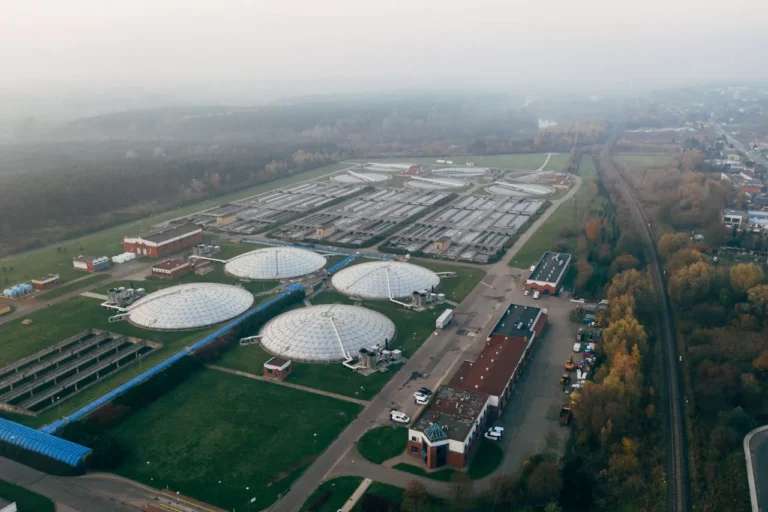
Leaps by Bayer Launches Major Global Survey on Breakthrough Tech Attitudes
As world leaders converge for the World Economic Forum Annual Meeting 2025 in Davos, Leaps by Bayer, the impact investing branch of Bayer, has unveiled a groundbreaking global survey in collaboration with Boston Consulting Group (BCG). The survey aims to examine public sentiment surrounding transformative technologies and has been recognized as one of the largest of its kind. Leaps by Bayer Conducted by Ipsos, a market research firm, this study provides valuable insights for innovators and policymakers to better understand the public’s perceptions of science and technology. It also highlights the challenges and opportunities faced by those working to advance new technologies aimed at improving human health and nutrition.

One of the central objectives of this research is to identify the public’s hopes, Leaps by Bayer fears, and concerns regarding the rapid advancements in technology. As innovation accelerates, it is essential to gauge societal attitudes to ensure that new solutions align with the expectations and values of communities worldwide.
Key Findings from the Survey:
- Optimism Toward Science and Technology
The study reveals that optimism surrounding science and technology is Leaps by Bayer notably high in certain regions, with 72% of global respondents expressing confidence in the future of science and technology. This optimism far outpaces other societal concerns such as the economy (39%) and politics (31%). Notably, middle-income countries such as China (86%) and Nigeria (94%) express much higher optimism about science compared to high-income Western nations. In the U.S., optimism stands at 68%, while France and Germany lag behind at 53% and 54%, respectively. Japan aligns with the Western countries, exhibiting a more reserved view (46%). - Trust Crisis in the West
The survey underscores a trust crisis in high-income countries, particularly in the West. While 62% of respondents globally trust health authorities to act in Leaps by Bayer the public’s best interest, this trust is significantly lower in countries like France (48%) and the U.S. (56%). In contrast, middle-income countries such as China (73%) and Nigeria (86%) exhibit far greater trust in health authorities, suggesting that the public in these regions is more confident in their leadership. - AI and Medical Decision-Making
The survey also found that in some of the most technologically advanced regions, there is considerable resistance to the use of artificial intelligence (AI) in healthcare. U.S. respondents, despite Leaps by Bayer being at the forefront of AI innovation in medicine, show reluctance towards AI-supported medical decisions. Only 50% are comfortable with their doctor using AI in their medical treatment, even though the U.S. is home to over 950 AI/ML-enabled medical devices cleared by the FDA, primarily in radiology. - Public Support for New Genomic Techniques (NGTs)
The survey indicates that people globally are largely supportive of new genomic techniques, especially in agriculture. About 56% of respondents favor NGTs, particularly for their potential to create crops that are more resilient to climate change. While 47% of Europeans view NGTs positively, only 12% hold negative views, even though the European Union maintains strict regulatory frameworks surrounding their use. This shows that despite government restrictions, there is significant public openness to the potential benefits of NGTs in addressing food security and climate challenges. - The Role of Knowledge and Trust
The study also reveals a clear correlation between people’s knowledge of innovative technologies and their willingness to embrace them. Those who are more informed about a technology are generally more optimistic about its benefits. On the other hand, a lack of trust in health authorities leads to greater skepticism about scientific breakthroughs. This finding highlights the need for increased public education and transparent communication from both scientists and government officials. - Global Support for Cell and Gene Therapies
The survey found strong support across all demographic groups for the development of cell and gene therapies. Millennials, in particular, are highly optimistic (78%), with Boomers following closely behind (70%). In fact, 59% of global respondents believe that the development of cures for diseases is worth pursuing, even if the treatments are only affordable to a few. This widespread optimism signals a positive reception for innovations that could revolutionize healthcare and address previously untreatable conditions.
Statements from Leaders:
Dr. Juergen Eckhardt, EVP and head of Leaps by Bayer, emphasized the importance of building societal acceptance alongside investing in transformative technologies. He remarked, “Addressing the world’s greatest challenges requires more than just investing in science—it requires actively engaging with the public and listening to their hopes and concerns about scientific advancements.” He expressed gratitude for the collaboration with BCG on the Breakthrough Study, which he believes will equip innovators to better engage society in the future.
Dr. Friedrich Moeckel, Managing Director and Partner at BCG Geneva, reflected on the findings, noting, “Despite strong optimism about science and technology, many remain neutral toward breakthrough innovations. This neutrality is an opportunity: by building trust and closing knowledge gaps, we can inspire greater understanding of how these advancements improve lives and address global challenges.”
The Need for Knowledge and Trust:
The survey’s findings underscore the critical need to build public trust and knowledge about emerging technologies. As geopolitical issues dominate global discourse, the public’s call for solutions to climate change, healthcare system strains, and global nutrition challenges remains as urgent as ever. However, the acceptance of emerging technologies, which have the potential to address these challenges, is inextricably tied to the public’s level of trust and understanding.
About Bayer, Leaps by Bayer, and BCG:
Bayer is a global enterprise focused on healthcare and nutrition, working to tackle the world’s most pressing challenges. Leaps by Bayer, the company’s impact investment unit, has invested over $2 billion in innovative companies across health and agriculture. BCG partners with leaders across business and society to solve complex challenges, driving sustainable growth and societal impact.







